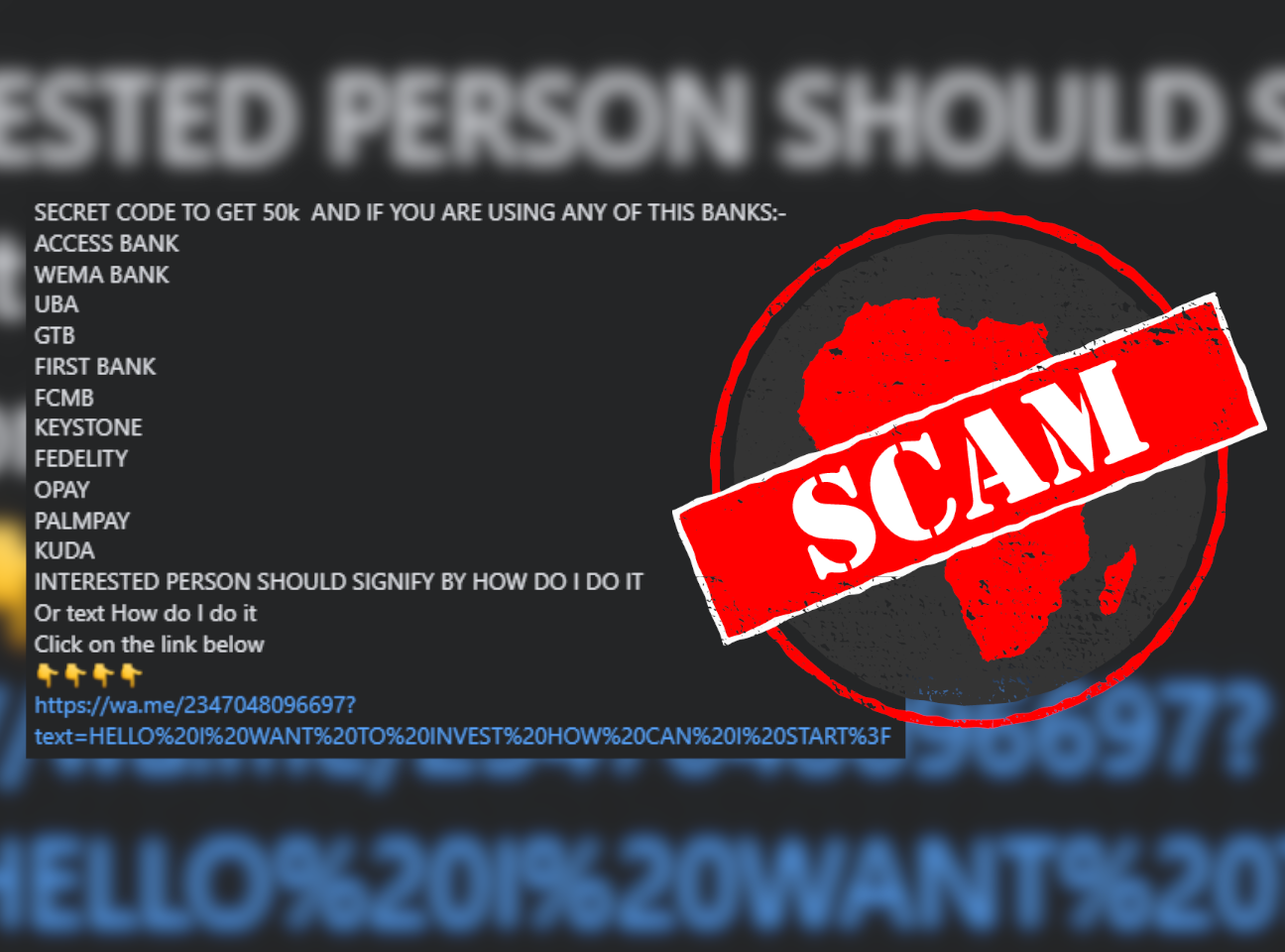IN SHORT: Many Nigerians would love to get N50,000 for free from their bank. But these Facebook posts claiming to have a code for it may be out to scam you.
A Facebook post claims that there is a secret code for Nigerians to get N50,000 (about US$63) from some banks.
The banks listed are: Access Bank, Wema Bank, UBA, GTBank, First Bank, FCMB, Keystone, Fidelity, OPay, PalmPay and Kuda.
The 2 December 2023 post reads, in part: “INTERESTED PERSON SHOULD SIGNIFY BY HOW DO I DO IT Or text How do I do it.”
But there is no explanation of what kind of "code" this might be.
The post, published on a public group with over 21,000 members, includes a WhatsApp link and a photo of the popular TV presenter Morayo Afolabi-Brown. She hosts a show called Your View on the TVC channel.
Similar posts can be found here, here, here, here, here, here, here, here, here, here, here and here. Some of the posts were published on Facebook groups with over 247,000 members.
But is this “secret code” legit? We checked.

From ‘code’ to ‘investment platform’
We initiated a conversation on WhatsApp to find out more about the “code” and the promised N50,000.
The account replied, saying: “You are welcome to Boldgain international investment platform.”
Africa Check previously investigated a platform known as Bold Gains investment and exposed it as a scam. The slight difference in the names – “Boldgain international investment” and “Bold Gains investment” – led us to believe that we were once again dealing with a scam.
We were then told that there were three packages available, with each promising to double our investment.
In a bid to convince us that the platform was legit, the account sent us several videos of people claiming to have benefited from it. But this is a tactic often used by scammers to lure unsuspecting users.
We were also asked for our personal details. This is a red flag, as this information can be used to commit fraud.
To end things off, the account provided us with bank details for us to make the initial investment.
There was no mention of a “code” or the N50,000 from the banks as mentioned on the Facebook posts, a sign that the person we were talking to could not be trusted.
Banks react
Africa Check reached out to PalmPay on X (formerly Twitter) to verify the claim that there was a code that could get customers N50,000.
“We have put up disclaimers on our official verified pages in a bid to sensitise customers to these pages and fictitious links,” the company’s rep said.
OPay also responded to our enquiry, saying: “OPay will not redirect you to links or request for your OTP, password and PIN.”
The OPay rep then urged users to “be vigilant to avoid being scammed”.
Read our guide on how to spot risky investment schemes and scams on Facebook in Nigeria here.
Republish our content for free
For publishers: what to do if your post is rated false
A fact-checker has rated your Facebook or Instagram post as “false”, “altered”, “partly false” or “missing context”. This could have serious consequences. What do you do?
Click on our guide for the steps you should follow.
Publishers guideAfrica Check teams up with Facebook
Africa Check is a partner in Meta's third-party fact-checking programme to help stop the spread of false information on social media.
The content we rate as “false” will be downgraded on Facebook and Instagram. This means fewer people will see it.
You can also help identify false information on Facebook. This guide explains how.




Add new comment